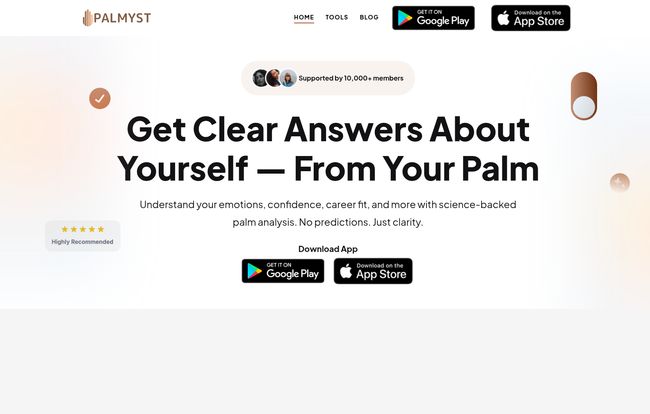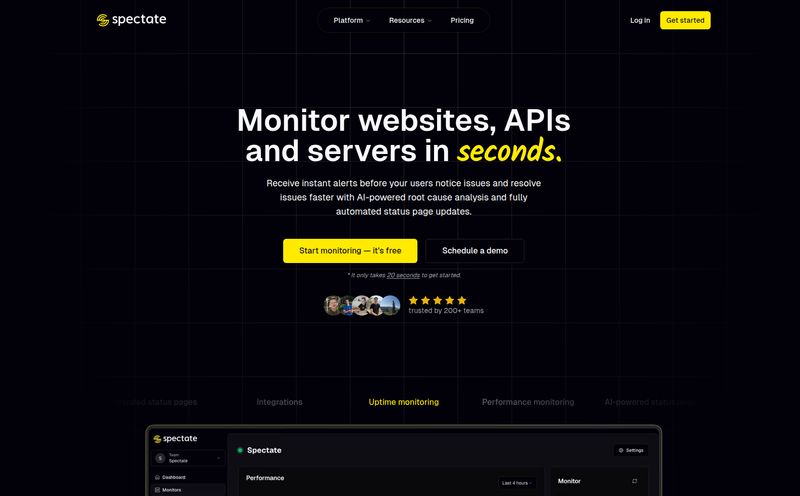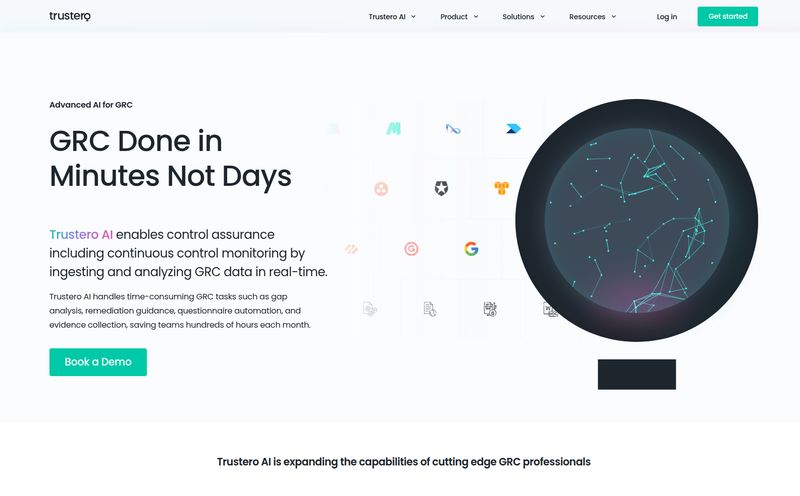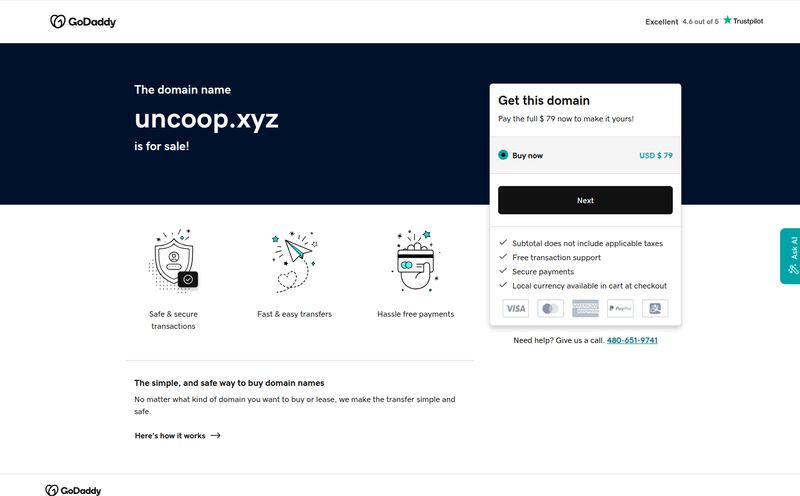For years, I've seen every trend come and go in the digital wellness space. From meditation apps that promise nirvana in ten minutes to AI life coaches that, frankly, give terrible advice. So when I first heard about Palmyst, an app that claims to give you “clear answers about yourself from your palm,” my professional skeptic alarm went off. Loudly.
Palm reading, right? It conjures images of dimly lit tents, crystal balls, and vague predictions about meeting a tall, dark stranger. But Palmyst is trying to flip the script. Their whole angle is “No predictions. Just clarity.” They call it palmanalysis and claim it’s backed by science. My curiosity was officially piqued. As someone who’s spent a decade chasing traffic and trends, I know a smart marketing angle when I see one. But is there any substance behind the slick branding? I had to find out.
So, What Is Palmyst, Really?
Before you roll your eyes and click away, hear me out. Palmyst isn't your grandma's fortune-teller. Think of it less like a crystal ball and more like a mirror. It’s an interactive platform, available on both Apple and Android, that uses an image of your palm to generate insights about your life. We're talking about your career path, your relationship dynamics, your health patterns, and your personal blockages.
The core idea is to use the unique lines, mounts, and shapes of your hand as a starting point for self-reflection. It's positioning itself as a tool for modern self-discovery, sitting somewhere between a personality test like the Myers-Briggs and a guided journaling prompt. It's for people who are maybe a little burnt out on generic self-help books and want something more personalized. Something a little... different.
How Does This Whole Palm-Scanning Thing Work?
The process itself is surprisingly straightforward. You don't need to book an appointment or find a mystic in a back alley. You just download the app, and it guides you through taking a clear picture of your dominant hand’s palm. The tech then gets to work, analyzing the patterns it sees.

Visit Palmyst
Once the analysis is complete, the app presents you with a personalized reading. It breaks down different facets of your life and gives you what it calls “actionable advice.” This is the part that I think separates it from the pack. It doesn't just say, “You have a long life line.” It might say something like, “Your well-defined life line suggests strong vitality, but its connection to your head line indicates you often let stress affect your physical well-being. Here are some techniques to manage that.” It’s a subtle but important difference.
Digging into the Palmyst Features
When you get past the initial scan, the app opens up into a few key areas. It’s not just a one-and-done reading.
Personalized Life Insights
This is the main event. Palmyst gives you detailed reports on the big three: career, love, and health. For career, it might point out traits that suggest you’re a natural leader or that you thrive in creative environments. For love, it looks at your heart line to offer insights into your emotional style—are you a passionate romantic or a cautious partner? The health insights are more about tendencies and predispositions, like potential for stress or burnout, rather than diagnosing illnesses (thankfully).
Curious About Compatibility?
This feature genuinely caught my attention. Palmyst offers compatibility insights. You can compare your palm reading with someone else’s to understand your dynamic better. While I’d take this with a huge grain of salt before, say, calling off a wedding, it's a fun way to look at relationships. It could spark some interesting conversations with a partner, a friend, or even a business colleague about how your emotional and practical styles mesh—or clash.
It’s All About Actionable Advice
I’ve mentioned this before, but it bears repeating. The focus is on action. The readings are designed to be a springboard. If it identifies a “blockage,” it suggests ways to confront it. If it sees potential, it offers ideas to nurture it. This transforms it from a passive novelty into an active tool for personal growth, which is a much more valuable proposition in my book.
The Big Question: Is Palmyst Legit or Just Woo-Woo?
Alright, let’s get down to the brass tacks. Is there any real science here, or is it just clever marketing wrapped in a spiritual bow? The answer, as with most things in life, is a bit complicated.
The Skeptic's Corner
Let's be clear: palmistry, or chiromancy, is not a scientifically proven field in the way physics or biology is. There are no double-blind, peer-reviewed studies in major scientific journals that prove the length of your fate line correlates with career success. So, if you're looking for hard, empirical data to plan your life, this ain't it. Furthermore, the results are based on interpretation. The same line could be interpreted differently by different practitioners, or in this case, by an algorithm. Then there's the privacy question. In a world where we're all a bit paranoid about our data, uploading a picture of your palm—a unique biometric identifier—might feel a bit sketchy for some. It’s a valid concern.
The Believer's Perspective
On the other hand, who’s to say what “legit” means when it comes to self-discovery? People find meaning in all sorts of places—tarot cards, astrology, the Enneagram. I see Palmyst in a similar light. It’s a framework for introspection. The lines on your palm are the prompt, but the insights come from you and how you react to the reading. It’s like a personalized Rorschach test, using the map on your hand instead of inkblots.
The app claims its analysis is “backed by palmistry experts and integrates scientific studies.” I couldn’t find a list of these studies, but it could refer to psychological principles or data analysis on user patterns. What it boils down to is this: if a reading prompts you to think about your career in a new way or address a communication issue with your partner, did it not provide real value? I think so.
Let's Talk Money: The Palmyst Pricing Puzzle
Here’s where things get a little murky. If you go to the Palmyst website, you'll find a beautiful, clean page for “Pricing”... with absolutely no prices on it. This is a classic app marketing strategy. They want you in the ecosystem first.
Based on my experience with apps like this, it's almost certainly a freemium model. You'll likely get a basic, introductory reading for free. But for the deep analysis, the compatibility reports, and the ongoing insights? You’re going to have to open your wallet for in-app purchases or a subscription. I can't give you exact numbers, but be prepared for a paywall after you get your first taste. It's not a bad thing, necessarily—developers need to eat too—but it’s good to know going in.
Frequently Asked Questions About Palmyst
Is Palmyst just another fortune-telling app?
Not exactly. It actively markets itself as being about “clarity, not predictions.” It focuses on psychological insights and actionable advice for self-improvement rather than telling you you’ll win the lottery next Tuesday.
Is it safe to upload my palm picture?
This is a personal comfort level question. Palmyst, like any app, will have a privacy policy. It's wise to read it. If you are highly concerned about biometric data, you might want to hesitate. For most people, it's likely no riskier than uploading a photo to social media.
How accurate are the readings from Palmyst?
“Accuracy” is subjective here. Think of it as being as accurate as a personality quiz. It provides a profile based on inputs, which can feel incredibly spot-on or slightly off. Its real value is in the self-reflection it triggers, not in its factual precision.
Do I need to pay to use Palmyst?
You can likely get a basic reading for free. However, for the most detailed features, personalized reports, and compatibility checks, expect to encounter in-app purchases or a subscription fee.
What kind of advice does it actually give?
The advice is focused on personal growth. For example, it might suggest mindfulness exercises if it detects stress patterns, or communication strategies if your relationship reading shows potential for conflict. It's more like advice from a life coach than a psychic.
Can Palmyst really tell me about my health?
No, and it's very important to be clear on this. It cannot diagnose medical conditions. The “health” insights are about predispositions to things like stress, energy levels, or emotional burnout based on traditional palmistry interpretations. Always consult a real doctor for any health concerns.
My Final Verdict: Is Palmyst Worth a Try?
After spending some time with it, my initial skepticism has softened into a kind of cautious optimism. Is Palmyst a magic 8-ball that holds all the secrets to your life? Of course not. But is it a beautifully designed, intriguing, and potentially insightful tool for self-reflection? Yes, I think it is.
If you go in expecting a scientific diagnosis of your life, you'll be disappointed. But if you go in with an open mind, ready to use it as a fun, creative way to check in with yourself, you might be surprised at what you find. The long and short of it is, the answers aren't really in your palm; they're in how you interpret what you're told is there. And for a generation obsessed with finding new pathways to personal growth, Palmyst offers a pretty interesting one. Why not give it a shot? You might just learn something.
Reference and Sources
- Britannica: Palmistry - For a historical overview of the practice.
- Psychology Today: The Power of Self-Reflection - An article on the psychological benefits of introspection.



